David Bentley Hart




For my father and mother, Robert and Marianne Hart, Gentlefolk of the Great State of Maryland
ix

 11 of the pieces assembled in this volume have been published previously, in journals or newspapers, though for the most part in slightly different forms than appear here. I have only two excuses for issuing them anew. The first is simply that a number of persons have suggested I do so. The second is that a collection of this sort allows me to restore several of these essays to something nearer the versions I originally wrote, as well as to make a few small alterations. Magazine and newspaper editors are of necessity concerned for the length of what they publish, and on more than one occasion I have had to accommodate an editor by abbreviating the text I had initially submitted. And sometimes I have succumbed to second thoughts, and moderated some of my more irresponsible rhetoric, and now in retrospect regret having done so. Editors, moreover, will insist on making small changes in what one writes, even when no particular improvement is discernible as a result. In truth, though, I have had small cause for complaint. Most of my editors have left my texts almost entirely intact, and have asked for only small revisions, if any (no doubt they know I will become unreasonable if asked to consent to anything larger). Still, to my mind the correct or definitive text is always the one stored in my hard drive, which is not necessarily the one that appeared in print; and so, in every case where there is a divergence between the two, it is the former I have included here (though with, as I have said, some slight amendments).
11 of the pieces assembled in this volume have been published previously, in journals or newspapers, though for the most part in slightly different forms than appear here. I have only two excuses for issuing them anew. The first is simply that a number of persons have suggested I do so. The second is that a collection of this sort allows me to restore several of these essays to something nearer the versions I originally wrote, as well as to make a few small alterations. Magazine and newspaper editors are of necessity concerned for the length of what they publish, and on more than one occasion I have had to accommodate an editor by abbreviating the text I had initially submitted. And sometimes I have succumbed to second thoughts, and moderated some of my more irresponsible rhetoric, and now in retrospect regret having done so. Editors, moreover, will insist on making small changes in what one writes, even when no particular improvement is discernible as a result. In truth, though, I have had small cause for complaint. Most of my editors have left my texts almost entirely intact, and have asked for only small revisions, if any (no doubt they know I will become unreasonable if asked to consent to anything larger). Still, to my mind the correct or definitive text is always the one stored in my hard drive, which is not necessarily the one that appeared in print; and so, in every case where there is a divergence between the two, it is the former I have included here (though with, as I have said, some slight amendments).
The articles I have published in the past several years are, broadly speaking, of two kinds: those written for publications with wide reader ships, and those written for academic guild periodicals. All the pieces reproduced here belong to the former category. A collection of essays of the other sort is in the works, but that will be a very different kind of book Here I want - at least, in part - to entertain. This is not to say that the pieces gathered here are not serious in their arguments; quite the contrary: in many ways, it is far easier to make ambitious arguments in articles for magazines, where one is at liberty to address the sort of large cultural, religious, or philosophical issues that one usually cannot in the narrower confines of academic journals. I mean only that, in these articles, I have given my natural inclinations towards satire and towards wantonly profligate turns of phrase far freer rein than academic writing permits. I hope most of my readers will not find these aspects of my "authorial voice" insufferable; I even hope they will take some pleasure in my prose (though perhaps that is most likely only if it is taken in measured doses). I have, at any rate, attempted to include only pieces that strike me as having some intrinsic interest, both in form and in content. This is true even of those written putatively as reviews of other men's books (of which there are a good number here); mere occasional reviews I would not think of including in a collection of this sort, but I have often chosen to review a book solely as a pretext for writing a small essay of my own, more in conversation with the book under examination than as a critical appraisal of that book
One feature of my style for which I am not inclined to feel penitent, but for which reason tells me I ought to offer some apology, is an occasional want of restraint, most particularly in my expressions of distaste for an idea or for the mind that produced it. This is all attributable, I expect, to those tendencies as a writer of which I have just spoken. My only defense - apart from confessing my sense that imperturbably mild manners often make for boring copy - is that I have never intentionally used language I thought disproportionately fierce in regard to any proposition or any thinker, and that in reviewing these essays I cannot honestly find an instance of invective I particularly regret. Perhaps the most savage personal remarks I have ever committed to print are those I made regarding the bioethicist Joseph Fletcher in the article entitled "The Anti-Theology of the Body," and they astonished even me by their vehemence when I read them again in preparing this volume; I did not, however, alter them, or even soften them to the degree that the editors of The New Atlantis did when the article originally appeared, for the simple rea son that they still do not seem unwarranted to me given the altogether loathsome nature of Fletcher's ideas, and the scandal that so many of our tenured intellectuals do not recoil from those ideas with the horror and revulsion they merit. I do not know if I believe that any quantity of abuse heaped upon persons like Fletcher is truly excessive, except in tactical terms: If one wants to convince others of the justness of one's views of anything, perhaps one ought to proceed in as moderate and cautious a manner as one can. But, then again, perhaps one occasionally should not; some ideas are simply evil, and the persons who conceive them somewhat depraved, and there may be something rather disgraceful in an unwillingness to say so.
At other times, of course, an idea or thinker is not evil or depraved, but merely silly or sanctimonious; and in these cases also a certain robustness in one's rhetoric is not necessarily a discreditable thing. The final essay in this collection is the most relentlessly satirical, I think it fair to say, and is directed at a philosopher - Daniel Dennett - who, whatever his faults, could never be indicted of the sort of moral idiocy that permeated Fletcher's work. In matters historical, religious, and even philosophical, Dennett is clearly something of an ignoramus; and he has always been a bad philosopher, however much he may be adored by journalists and book reviewers and his ideological comrades; and, since his work now belongs to that parasitic subcategory of analytic philosophy that serves simply as a sort of adjunct to the hard sciences, he no longer really writes philosophy anyway. All of that would be quite pardonable, though, were it not for the self-importance, condescension, and imperiousness of his writings on the relation between scientific reason and religious belief. Ignorance and defective logic become truly offensive only when combined with invincible and self-deluding arrogance. Moreover, whereas most of Dennett's books have something to commend them - many are quite informative on recent developments in evolutionary theory, for instance - the book I address in the article included here, Breaking the Spell, could scarcely be more vapid in its content or reprehensible in its tone. It is no worse, admittedly, than the books of Richard Dawkins, Sam Harris, or Christopher Hitchens (though Hitchens, even if he cannot think his way to the end of a simple syllogism, can write fairly well, as Dennett most emphatically cannot); but the arguments of a philosopher - even a bad philosopher - must be held to a higher standard. Of course, the truth is that the entire tribe of the "New Atheists" is a dis appointment. A reflective and brilliant atheist is a man much to be admired, if he truly demonstrates an understanding of what it is he is rejecting; and an atheist genuinely willing to accept the full implications of his convictions (Nietzsche being a nonpareil example) should not be reviled for those convictions. But it seems obvious that among the innumerable evidences of late modern culture's lack of spiritual depths one must include its manifest impotence to produce profound atheists. Instead, the best it seems we can hope for today are dreary purveyors of historical illiteracy, theatrical indignation, subfusc moralizing, and the sort of logical confusions that Richard Dawkins has brought to a level of almost transcendent perfection.

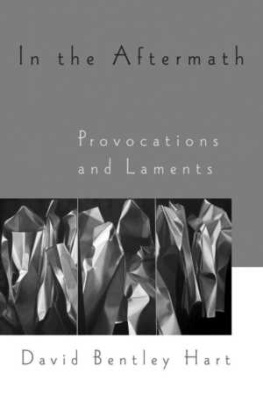
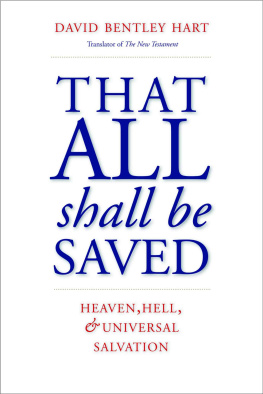


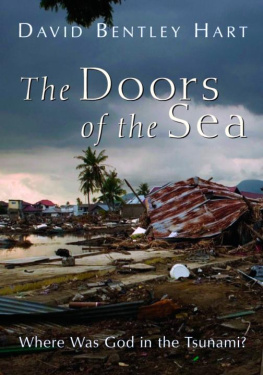
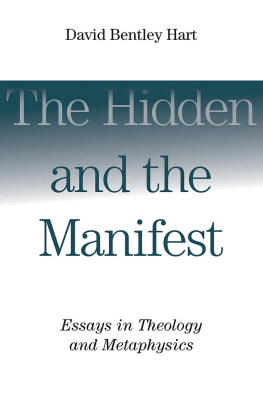
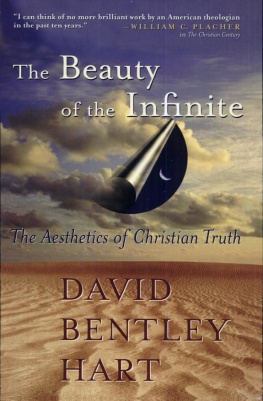
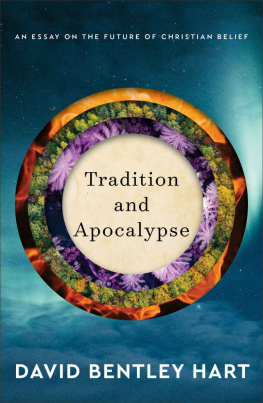


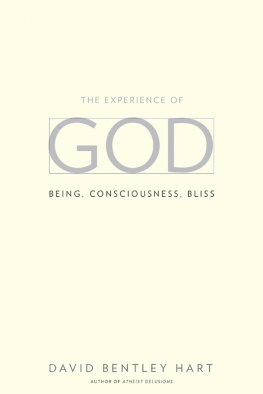


 11 of the pieces assembled in this volume have been published previously, in journals or newspapers, though for the most part in slightly different forms than appear here. I have only two excuses for issuing them anew. The first is simply that a number of persons have suggested I do so. The second is that a collection of this sort allows me to restore several of these essays to something nearer the versions I originally wrote, as well as to make a few small alterations. Magazine and newspaper editors are of necessity concerned for the length of what they publish, and on more than one occasion I have had to accommodate an editor by abbreviating the text I had initially submitted. And sometimes I have succumbed to second thoughts, and moderated some of my more irresponsible rhetoric, and now in retrospect regret having done so. Editors, moreover, will insist on making small changes in what one writes, even when no particular improvement is discernible as a result. In truth, though, I have had small cause for complaint. Most of my editors have left my texts almost entirely intact, and have asked for only small revisions, if any (no doubt they know I will become unreasonable if asked to consent to anything larger). Still, to my mind the correct or definitive text is always the one stored in my hard drive, which is not necessarily the one that appeared in print; and so, in every case where there is a divergence between the two, it is the former I have included here (though with, as I have said, some slight amendments).
11 of the pieces assembled in this volume have been published previously, in journals or newspapers, though for the most part in slightly different forms than appear here. I have only two excuses for issuing them anew. The first is simply that a number of persons have suggested I do so. The second is that a collection of this sort allows me to restore several of these essays to something nearer the versions I originally wrote, as well as to make a few small alterations. Magazine and newspaper editors are of necessity concerned for the length of what they publish, and on more than one occasion I have had to accommodate an editor by abbreviating the text I had initially submitted. And sometimes I have succumbed to second thoughts, and moderated some of my more irresponsible rhetoric, and now in retrospect regret having done so. Editors, moreover, will insist on making small changes in what one writes, even when no particular improvement is discernible as a result. In truth, though, I have had small cause for complaint. Most of my editors have left my texts almost entirely intact, and have asked for only small revisions, if any (no doubt they know I will become unreasonable if asked to consent to anything larger). Still, to my mind the correct or definitive text is always the one stored in my hard drive, which is not necessarily the one that appeared in print; and so, in every case where there is a divergence between the two, it is the former I have included here (though with, as I have said, some slight amendments).